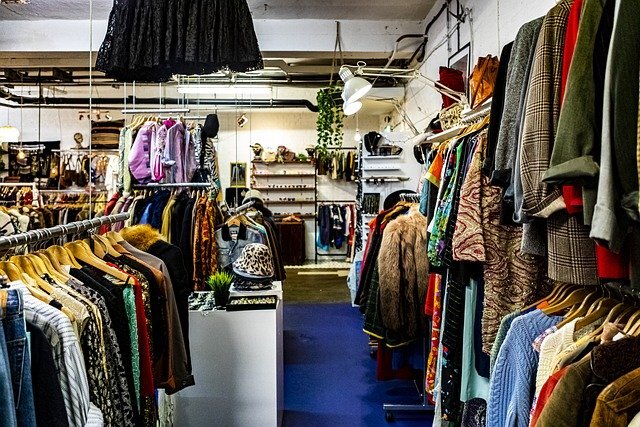Making the UK a leader in sustainable fashion
Developing sustainable fabrics, boosting fabric recycling and bringing manufacturing jobs back to the UK are some of the key recommendations put forward to the government today in a new report produced by Hubbub on behalf of the All-Party Parliamentary Group for Ethics and Sustainability in Fashion.
‘Making the UK a leader in sustainable fashion' [read the full report here] sets out how the sector could follow a more sustainable route and the role that government, businesses and consumers might play.
Covid-19 has hit the fashion industry hard. Supply chains have broken, sales have dropped, unsold stock has built, retail outlets have closed and companies have gone out of business. Consumer habits have shifted and so have attitudes. It’s more clear than ever: the public wants to see change.
Even before the virus struck, the environmental and social impact of the industry was increasingly under public scrutiny. Fast fashion resulted in £140 million of clothing being sent to landfill every year in the UK. And, whilst charity shop donation rates are high, 300,000 tonnes of clothing still end up in household bins every year with around 20% of this going to landfill and 80% incinerated.
Looking ahead, the industry’s carbon dioxide emissions were expected to rise from 1.2 billion tonnes now to nearly 2.8 billion tonnes by 2030.
Hopes pinned on the 2019 House of Commons Environment Audit Select Committee report ‘Fixing Fashion’ were crushed when the government rejected most recommendations - and stated that the rest were covered, to some degree, in the 2018 Resource and Waste Strategy published 2 months earlier. Now, the new APPG report calls for government to reassess its approach and to support the industry in a more just and sustainable way, as it seeks to rebuild from the impact of COVID-19.
They wouldn’t be doing it alone. The new research, part of Hubbub’s wider Greenprint for a Better Britain, shows that the 65% of UK residents agreed that the government should urgently do more to reduce the impact of the fashion industry on the environment, 65% would support a slow-down in fashion and 75% of respondents felt that clothing companies had a responsibility to look after the people who made their products.
52% of those polled said they would be willing to spend a little more on clothes if they were guaranteed to be made ethically in the UK supporting British workers and 49% would be willing to spend a little more on clothes if they were guaranteed to be less impactful on the environment.
“Coronavirus has exposed deep inequalities and unsustainability in the garment industry,” says Catherine West MP, chair of the APPG. “Creating a sustainable and ethical future for the fashion industry is an important but complex challenge for government, industry and the public and what is clear is that there is an appetite for this on all sides. We must seize this moment and put these recommendations into action by pushing the government to be a global leader, helping to build a more sustainable and ethical fashion industry, both within the UK and globally”.
The APPG report calls for government to:
Invest in research and development to create more sustainable fabrics that have a lower environmental and social impact – backed by 66% of the public.
Boost investment in UK fabric recycling facilities to create a more circular economy – backed by 73% of the public.
Support new start-up businesses operating more green business models – backed by 74% of the public.
Invest in skills to bring more clothes manufacturing jobs back to the UK – backed by 72% of the public
Support industry to create clearer information and labelling about the sustainability of clothes helping to educate consumers about their everyday choices and force companies to change their approach – backed by 64% of the public.
The launch of the report forms part of Hubbub’s wider Greenprint for a Better Britain – a manifesto developed using public polling and consultation with business - which sets out 10 practical policies to help reinvigorate the UK economy in a way that is fair and sustainable. Here’s how you can support the Greenprint.
